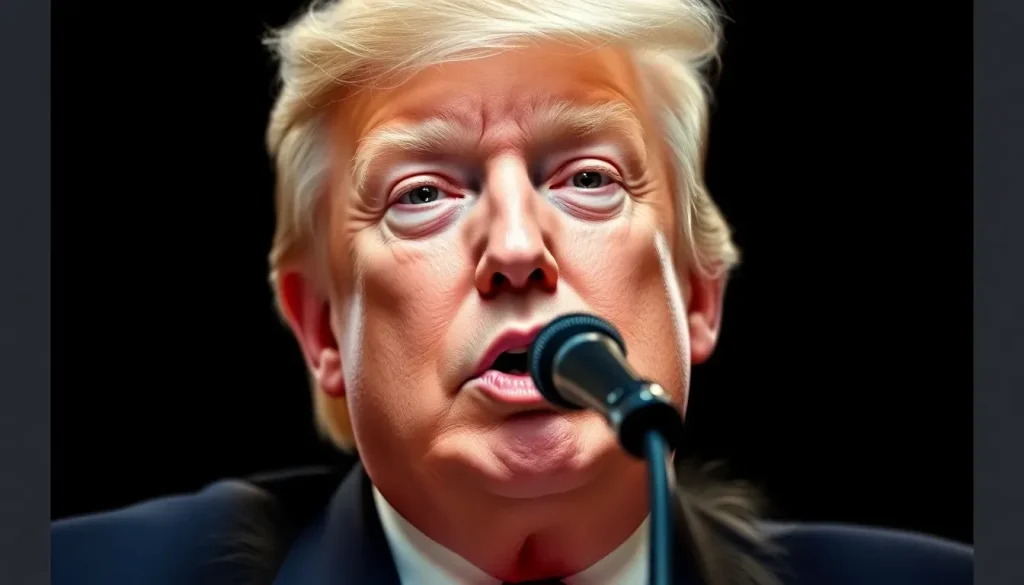Trump suggests TikTok modifications for a 100% MAGA experience

The debate surrounding TikTok has intensified recently, particularly in light of political maneuvers and potential ownership changes. With former President Donald Trump expressing a desire for the platform to align more closely with his political agenda, questions arise not only about the implications for content moderation but also for the broader landscape of social media in the United States. As TikTok navigates this complex terrain, the stakes are high for users, advertisers, and political actors alike.
Trump's Vision for TikTok
Former President Trump has suggested that TikTok should be transformed into what he calls a "100% MAGA" platform, reflecting his political ideology and the interests of his supporters. This statement raises significant questions about the future of the platform and its role in American media. Trump's proposal appears to aim at shifting the platform into a more conservative space, potentially altering how content is created and shared.
With this vision, the implications for free speech and the diversity of viewpoints on social media could be profound. Experts warn that such a shift may lead to increased censorship of left-leaning voices or those that do not align with MAGA principles. The tension between political ideology and platform neutrality stands at the forefront of these discussions.
The Impact of Ownership Changes
Ownership changes in TikTok could significantly reshape its content policies. As the situation evolves, analysts speculate that the involvement of Trump and his allies might enable them to steer the platform in ways that align with their political views. This influence could manifest through changes in content moderation policies and algorithm adjustments that favor certain narratives over others.
- Increased Censorship: There are fears that TikTok could implement stricter controls over content that contradicts conservative values.
- Algorithm Bias: Changes in the algorithm might prioritize content that supports MAGA ideals while suppressing dissenting opinions.
- Media Control: The potential consolidation of media power among Trump's allies could lead to an unprecedented level of influence over public discourse.
Legal and Ethical Considerations
As discussions of ownership and control heat up, it is crucial to consider the legal ramifications of such a shift. Questions surrounding compliance with the Protecting Americans from Foreign Adversary Controlled Applications Act remain unanswered. This uncertainty raises concerns about the legality and ethics of any proposed changes to TikTok's operations.
James Sullivan from JP Morgan noted that the lack of clarity regarding control over TikTok's algorithm leaves significant national security concerns unresolved. The potential for a foreign entity to influence a major social media platform raises red flags, not just for lawmakers but also for users who rely on TikTok for communication and expression.
Public Reactions and Concerns
Public sentiment regarding Trump's proposed changes to TikTok is mixed. While some of his supporters may welcome a platform that aligns with their values, many others express concern about the implications for free speech. Critics argue that granting political allies control over a platform with such a vast user base could undermine democratic principles.
- First Amendment Issues: Experts warn that any government influence over TikTok's content could violate First Amendment rights.
- Loss of Diversity: A shift toward a politically biased platform may stifle diverse voices and reduce the richness of content available.
- User Backlash: Users may take to other platforms if they feel their expression is stifled on TikTok.
Media Control and Its Implications
The potential for media moguls like the Murdochs and Ellisons to gain influence over TikTok raises significant concerns. A recent report by The Guardian indicates that this could give Trump's billionaire allies a degree of control over US media that is virtually unmatched. This concentration of power could steer not only TikTok but also the broader media landscape towards a more partisan direction.
The implications of such control extend beyond TikTok, potentially impacting traditional media outlets and other social media platforms. The ability of these influential figures to dictate narratives and influence public opinion could reshape the information ecosystem in the United States.
For those interested in a visual representation of these discussions, you might find this video helpful:
The Future of TikTok in a Political Landscape
As TikTok navigates these turbulent waters, the platform's future remains uncertain. The interplay between political influence and social media remains a critical issue, prompting discussions about the role of technology in shaping public discourse. The potential alignment of TikTok with specific political ideologies could lead to significant changes in how the platform operates and how users interact with it.
Ultimately, the future of TikTok will depend on a myriad of factors, including regulatory decisions, public sentiment, and the actions of its new leadership. As these developments unfold, users, advertisers, and policymakers alike will need to stay informed and engaged to understand the implications for the digital landscape.




Leave a Reply